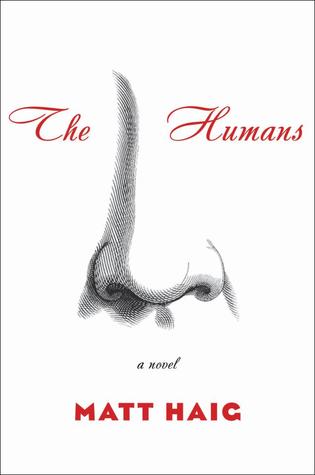The narrator of this tale is no ordinary human—in fact, he’s not human at all. Before he was sent away from the distant planet he calls home, precision and perfection governed his life. He lived in a utopian society where mathematics transformed a people, creating limitless knowledge and immortality.
But all of this is suddenly threatened when an earthly being opens the doorway to the same technology that the alien planet possesses. Cambridge University professor Andrew Martin cracks the Reimann Hypothesis and unknowingly puts himself and his family in grave danger when the narrator is sent to Earth to erase all evidence of the solution and kill anyone who has seen the proof. The only catch: the alien has no idea what he’s up against.
Disgusted by the excess of disease, violence, and family strife he encounters, the narrator struggles to pass undetected long enough to gain access to Andrew’s research. But in picking up the pieces of the professor’s shattered personal life, the narrator sees hope and redemption in the humans’ imperfections and begins to question the very mission that brought him there.
And here's what I thought: I thought this was an interesting, thoughtful, clever, touching, and amusing book. I suppose that's a lot to say about one book, but I enjoyed how this book made me think, and feel, when I was reading it.
The way that the author sets up the book (as you can see from the summary), we have a narrator who is observing everything through a lens of being a non-human --- so he's able to be very removed from everything, whether it's about himself, or the people around him, which makes for a fascinating, and often amusing, perspective. The way that "Andrew" learns about himself, and people in general, is interesting because he doesn't have many reference points, and the ones he does have just sound academic. Imagine reading about a human in a science textbook the way that we might read about an animal in the wild, breaking it down into dry paragraphs about diet, habitat, lifespan, etc. Andrew's perspective is usually pretty dry, which results in many things sounding pretty humorous. This isn't to say that I laughed out loud when I was reading -- but I did smile to myself from time to time.
One of the other things I found interesting about this book is that Andrew isn't just learning about humans in general, but he's learning about what it is to be human, with all of the subtleties, and complications that we have.
I think what really makes this an enjoyable read is the author's writing style. Sure, you have an interesting story, but without the wonderful writing, the story would fall completely flat. Everything in this book is in first-person, from Andrew's perspective, and the way that he sees things is pretty unique. Here's an example from page 32:
Humans, as a rule, don't like mad people unless they are good at painting, and only then once they are dead. But the definition of mad, on Earth, seems to be very unclear and inconsistent. What is perfectly sane in one era turns out to be insane in another. ... Basically, the key rule is, if you want to appear sane on Earth, you have to be in the right place, wearing the right clothes, saying the right things, and only stepping on the right kind of grass.
I also liked how Andrew starts the book as being a somewhat cold observer, intent on fulfilling his assignment, and then as he learns more, he warms up, and becomes more sympathetic (to humans, and also, becomes a more sympathetic character, himself). I liked how he started to relate to his wife, and his son --- and also, their dog, Gulliver (who, by the way, is a great character). Reading this book is like going on a steady exploration of something you've never seen before, and then recognizing that you're kind of exploring your own self at the same time.
First lines: I know that some of you reading this are convinced humans are a myth, but I am here to state that they do actually exist. For those that don't know, a human is a real bipedal life form of midrange intelligence, living a largely deluded existence on a small, waterlogged planet in a very lonely corner of the universe.





















0 comments:
Post a Comment
Thank you for taking the time to comment!
Please note that I am officially designating this blog an award-free zone. Thank you!!